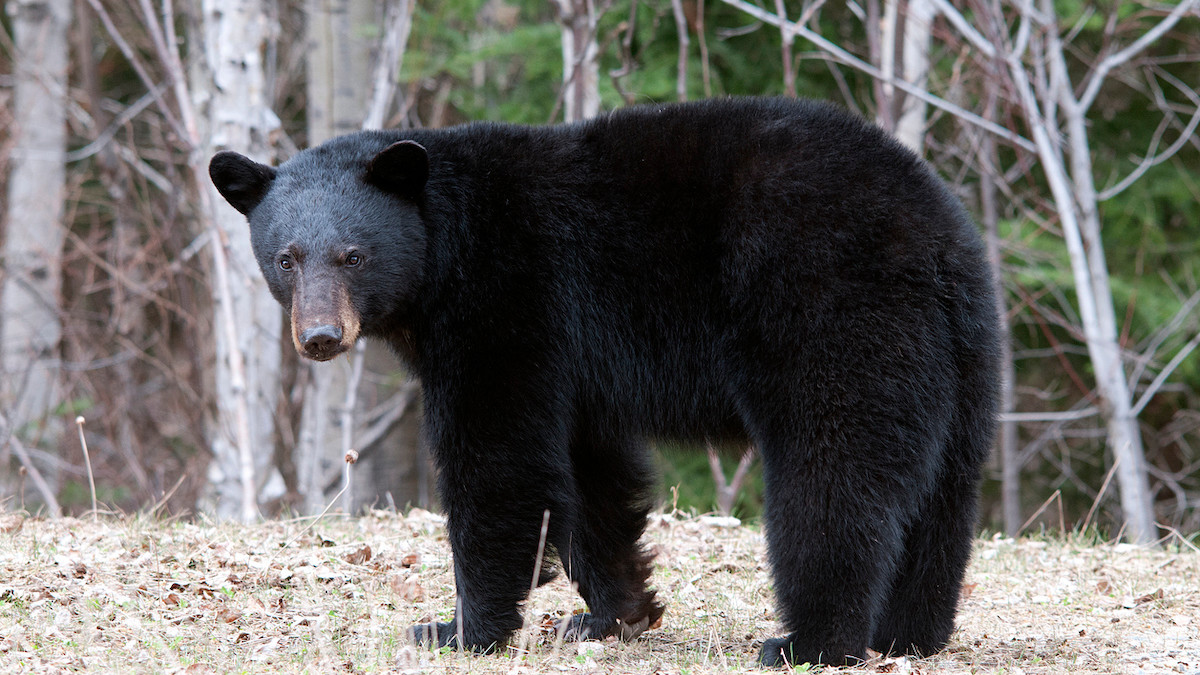
The New Jersey Fish and Game Council voted to reopen the state’s bear hunt this December. Following a rampant increase in human-bear conflicts, Governor Phil Murphy announced that he will rescind his 2018 executive order which banned bear hunting on state lands.
“I feel awful,” Governor Murphy said in an interview with NJ Advance Media. “But I can’t violate what are obvious facts that are potentially undermining public safety, particularly among kids. I just can’t in good conscience go on in this direction.”
The Fish and Game Council discussed the emergency rule decision at a meeting held Tuesday, November 15. On top of approving a new hunt, the Council agreed to reinstate the Comprehensive Black Bear Management Plan, which expired in 2020. In a press release from the New Jersey Department of Environmental Protection (NJDEP), they explain that the emergency decision is necessary to protect public safety and support a healthy wildlife population.
"From the data we have analyzed to the stories we have heard from families across the state, it is clear that New Jersey's black bear population is growing significantly, and non-lethal bear management strategies alone are not enough to mitigate this trend," Governor Murphy said in the press release.
A Decision Backed by Numbers
Reported black bear damage and nuisance incidents between January and October have risen 237% compared to the same time period last year. According to the NJDEP, in 2022 alone, there were 1,538 nuisance and damage reports, including 62 aggressive interactions, 52 attacks on protected livestock, 15 attempted home entries, and one human attack. New Jersey’s black bear population spans all 21 counties, and the NJDEP estimates that the state bear population will grow by nearly 33% in the next two years.
The bulk of the nuisance and damage incidents stem from the northwestern portion of the state, particularly in Sussex, Morris, and Warren Counties. These three counties accounted for 1,384 of the 1,971 black bear reports in 2022. According to the NJDEP, this area also holds one of the densest populations of black bears in the nation.
“After months of ignoring the science, clearly the math was irrefutable,” Sussex County Commissioner Dawn Fantasia said in an interview with the New Jersey Herald, “The sheer explosion in the black bear population, the numbers of repeated encounters with aggressive bears, including attacks on people, pets, and livestock, and extensive damage to property and crops, the people of northwestern New Jersey have finally been heard.”
A Brief Jersey Bear Hunt History
Bear hunting has been a hot topic in Jersey politics for decades now. Most of the controversy began in 2003 when black bears were added to the state game code, and New Jersey held its first bear hunt in 33 years. During the 2003 hunt, hunters harvested 328 bears. The following year, in 2004, the Commissioner of the DEP overruled the Fish and Game Council and halted the bear hunt, calling for management alternatives, including contraception and increased public awareness. His efforts only lasted until 2005, when the hunt resumed. The hunt was canceled again between 2006 and 2009—during that time, bear incidents rose by 96%. That sparked Governor Chris Christie’s administration to reinstate an annual hunt in 2010, which continued until Governor Murphy took office in 2018.
Governor Murphy ran on the campaign promise to end the bear hunt for good. He did so only partially with his 2018 executive order that ended bear hunting on state lands. Two years later, the Comprehensive Black Bear Management Plan expired. Without it, New Jersey could not legally hold a hunt. The Fish and Game Council voted to reinstate the Management Plan and reopen the bear season in 2021, but Governor Murphy shot it down.
“There will be no bear hunt this year. Period.” Governor Murphy said shortly after the Game Councils 2021 vote. His current shift in rhetoric has surprised many, but he insists that without a regulated hunt, the state will continue to struggle to maintain black bears at safe population levels.
Last week, former state senator Raymond Lesniak threatened to sue Governor Murphy if he approved the hunt. In 2016, Senator Lesniak highlighted the killing of “Pedals” an internet-famous bipedal bear that was filmed ambling through suburban New Jersey neighborhoods on its hindlegs. Pedals’ online fandom resulted in over 300,000 people signing a petition and donating over $20,000 to relocate the bear to a wildlife sanctuary. In October of 2016, New Jersey hosted its first archery bear hunt in decades, and Pedals was harvested by a bow hunter. In reaction, Lesniak sponsored Pedals’ Law, which would have ended New Jersey’s bear hunt for five years, but the bill never passed a senate vote.
Moving Forward
“Every New Jerseyan deserves to live in communities in which their children, families, and property are protected from harm, and while I committed to ending the bear hunt, the data demands that we act now to prevent tragic bear-human interactions,” Governor Murphy said. “We must responsibly adapt to the population with carefully regulated and strict bear population management strategies to ensure our communities and families are protected from the growing black bear population.”
The new emergency order hunt includes restrictions on baiting, the harvest of bears under 75 pounds, and the harvest of bears traveling with cubs. The season is expected to take place from December 5 to December 10, the same week as the 6-day deer firearm season. The management objective is to reduce the bear population by 20%. If that mark is not achieved, a second season will be added the following week, from December 14 to December 17.





